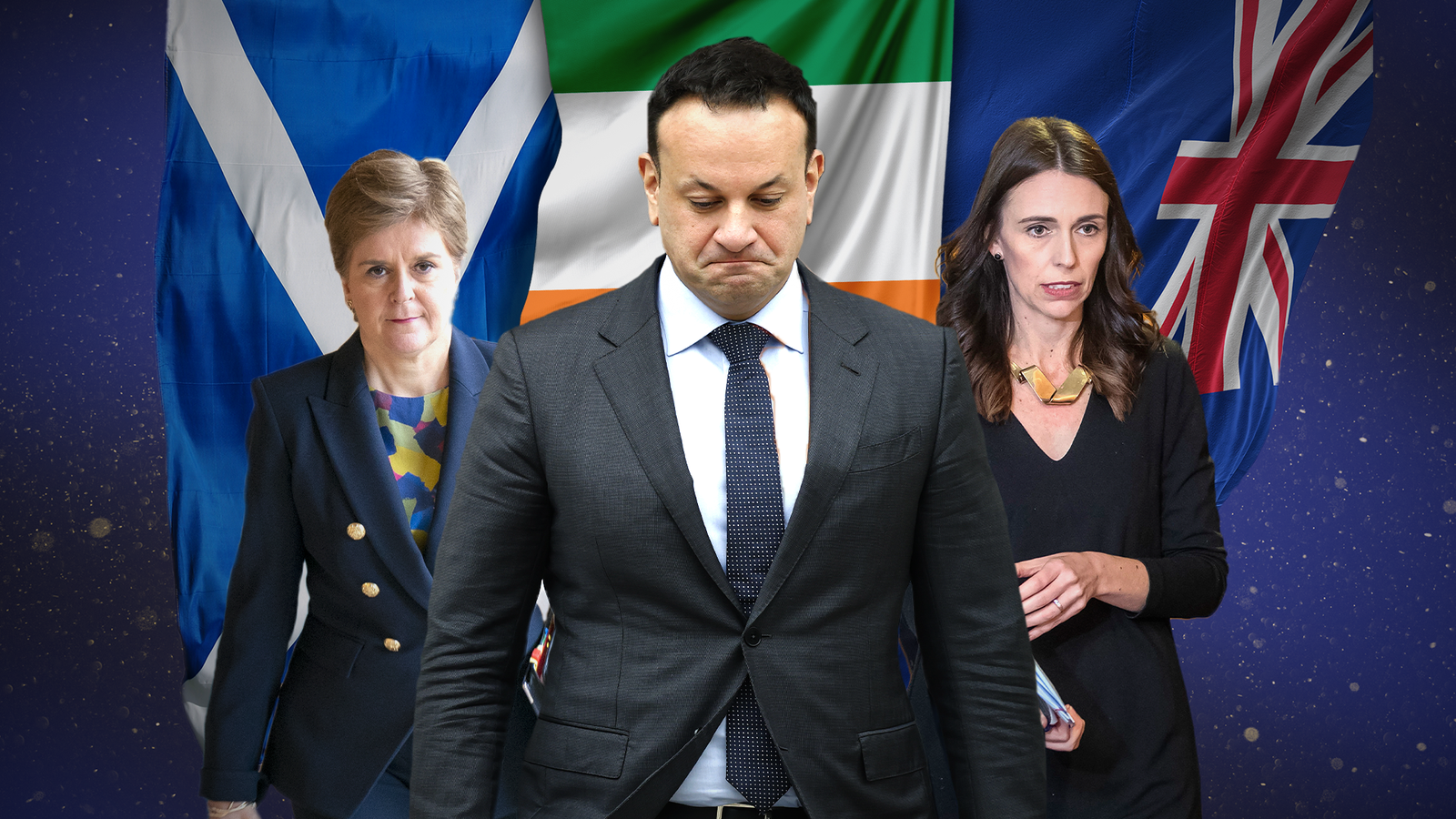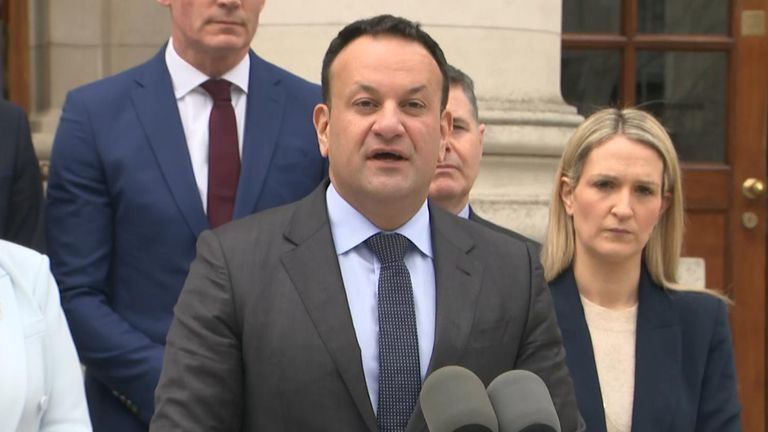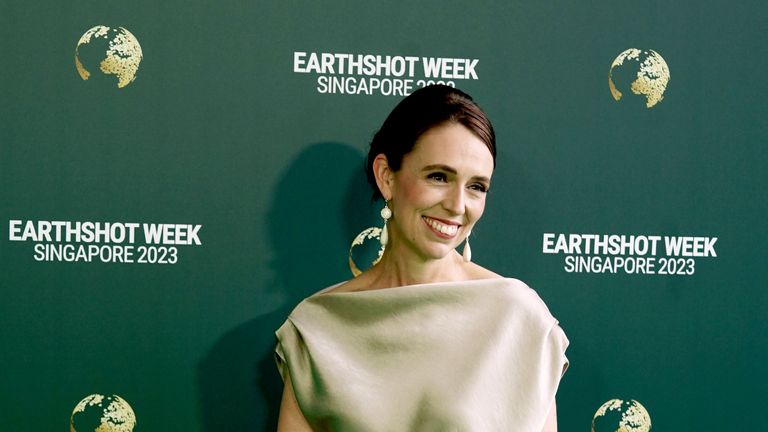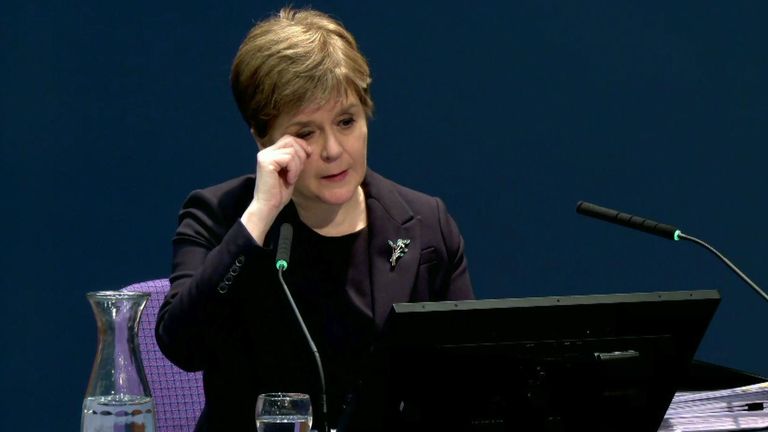There goes another one. The Irish Prime Minister Leo Varadkar announced this week that he is quitting at the age of 45, explaining: “I don’t feel I’m the best person for that job any more.”
He is just the latest in a spate of national leaders to stand down voluntarily when seemingly at the peak of their powers.
Last year New Zealand’s former prime minister, Jacinda Ardern, found she had “no more in the tank” aged 43.
Nicola Sturgeon went at 53 to spend “a little bit more time on Nicola Sturgeon the human being”, since being first minister of Scotland “takes its toll on you”.
Politicians at the very top are not the only ones calling an early end to their careers.
The number of MPs standing down from the Commons has now reached 100 and counting.
That is what might be expected ahead of a likely “change election” when the opposition is poised to take over from incumbents. A major cause for concern is the comparatively young age of many of those giving up and quitting so soon.
From resigning prime ministers to departing MPs something must be going wrong if politics only holds such a passing attraction for people of talent.
Maybe the jobs of leader and people’s representative are more impossible than they have ever been in the social media age. Or perhaps the wrong people are going into politics at the wrong time. They are quitters not fighters.
“Poster Child” almost seems an apt description for some of those joining the exodus from Westminster: Nicola Richards 29, Mhairi Black 29, William Wragg 36 and Deheena Davison, 30.
Most of the MPs going prematurely have only known one government in their time at Westminster. The majority of those standing down have only been MPs since 2010 at the earliest. More than a dozen were first elected in 2017 and 2019.
The prospect of imminent or actual defeat has of course concentrated the minds of those handing in their parliamentary passes voluntarily. Two out of three who announced they are not standing again are Conservatives.
Adverse circumstances higher up the food chain
Higher up the food chain, Varadkar, Ardern and Sturgeon were praised at first for going in their own time for no particular reason. It soon became apparent that they were in adverse circumstances.
Police Scotland’s Operation Branchform investigating alleged fraud by the SNP is still under way. Ms Sturgeon and her husband have both been interviewed under caution.
Meanwhile her party’s standing and support for Scottish independence have both headed south in opinion polls.
Ms Ardern once talked about seeking a third term as prime minister. Instead, under her successor as leader, her Labour Party was walloped by the conservative National Party in last year’s election, amid a reaction against the “woke” values she personified.
As his country’s youngest-ever prime minister, gay and from an Indian ethnic background, Mr Varadkar also embodied Ireland’s rapid liberalisation.
But this month, he and Dublin’s political establishment suffered the setback of resounding defeat in a double referendum attempting to modernise the constitution on “relationships” outside marriage and the role of women.
👉 Listen above then tap here to follow Electoral Dysfunction wherever you get your podcasts 👈
Read more:
Nicola Sturgeon dismisses ‘secret lesbian’ claim – as she addresses reasons for her resignation
Jacinda Ardern ‘driven from office’ by unprecedented hatred and constant abuse, politicians say
Mr Varadkar, from the right of centre Fine Gael party, owes his seven years in office to a series of pacts with the opposition Fianna Fail, which were largely designed to keep the republican Sinn Fein away from power.
A general election is due soon and Sinn Fein now tops the polls in the south under Mary Lou MacDonald. Sinn Fein’s Michelle O’Neill is first minister in Northern Ireland.
Not like previous generations
Today’s quitter-politicians certainly face some stark challenges but they are all going down without a fight, unlike many in previous generations.
William Gladstone and Harold Wilson both regained the premiership after losing it. Others like Ted Heath and Margaret Beckett stayed on for years after their glory days of power.
Most of the MPs going now plan to leave politics altogether. They complain that the pressures of the job have become intolerable. Some talk of worries for their mental health and even post-traumatic stress disorder (PTSD).
Pay is not the main issue. The government has accepted IPSA’s recommendation of a 5.5% increase taking an MP’s salary to £91,346 a year.
While it is true that wage inequalities have increased to the benefit of the very highest earners, MPs and ministers in the UK and elsewhere have more than maintained their differential above the average professional salary.
Some of those leaving now, perhaps with backgrounds in teaching or local government, say they are worried that they might not be able to earn as much. Some are announcing their intention to quit now hoping to be at the front of the queue for opportunities.
Being a minister in a failing government is not so attractive when it means an automatic six-month quarantine before taking up new employment.
Organised pile-ons and email campaigns
Mr Varadkar explained: “Politicians are human beings and we have our limitations.
“We give it everything until we can’t any more.”
He speaks for many of those calling it a day. They talk of the pressures of being on call 24/7. Thanks to the internet, constituents can contact them with less effort than ever and monitor their activities and apparent work rate. Organised pile-ons and email campaigns are a common hazard.
Far worse, a growing minority of the public regard MPs as fair game. At the extreme this has resulted in the recent murder of two MPs, Jo Cox and David Amess, and a number of other violent assaults.
Women MPs also have to deal with vile abuse and threats online every day. Some consider the male-dominated atmosphere at Westminster to be “toxic”.
Tony Blair was the first prime minister to have young children in Downing Street for a century. Since then Brown, Cameron, Johnson, Truss and Sunak have each taken families into Number 10.
As the demand for younger political leaders grows, so do their difficulties bringing up children. Some of the women leaving office, including Ms Ardern, talk of the personal and private pressures. Blair was the most successful British politician of his generation but says he would be “really worried” if any of his four adult children wanted to go into politics.
Plenty of nutters and demagogues
Mainstream parties are now having trouble finding candidates who look like decent, long-term prospects. There are always plenty of nutters and demagogues looking for an opening but sensible men and women willing to serve their country with a career in parliament are in short supply.
As a result, both the Conservatives and Labour are having to pick young candidates with local links. A significant number of these potential MPs have some knowledge of the ropes thanks to family connections to politicians and others in “the Westminster Bubble”, including journalists. They are not necessarily good long-term bets.
Single people in their 20s and early 30s cannot know where their lives are heading. Those now leaving parliament after a few years presumably took a wrong turning when they became MPs. The electorate that has been paying to train them will not get the benefit of their expertise in future.
Most ex-prime ministers still have something to offer in the public realm. But they choose to do it away from the crumbling palace of Westminster. Theresa May is the latest to say that she can better concentrate on what she cares about by leaving the Commons.
Few linger long once they have been elected. The average tenure of an MP is falling. The average age of MPs is around 50 compared to 57 in the US House of Representatives and 64 in the Senate. Admittedly the US has its unique problems of gerontocracy, but elsewhere in the English-speaking world it ought to be possible to get more use out of our mature politicians.
As things stand we are all caught in a vicious cycle. The quality of those seeking to govern is diminishing; that in turn breeds disrespect for politicians, which makes the job less appealing than ever.
As Leo Varadkar put it: “We give our all until we can’t anymore.”




